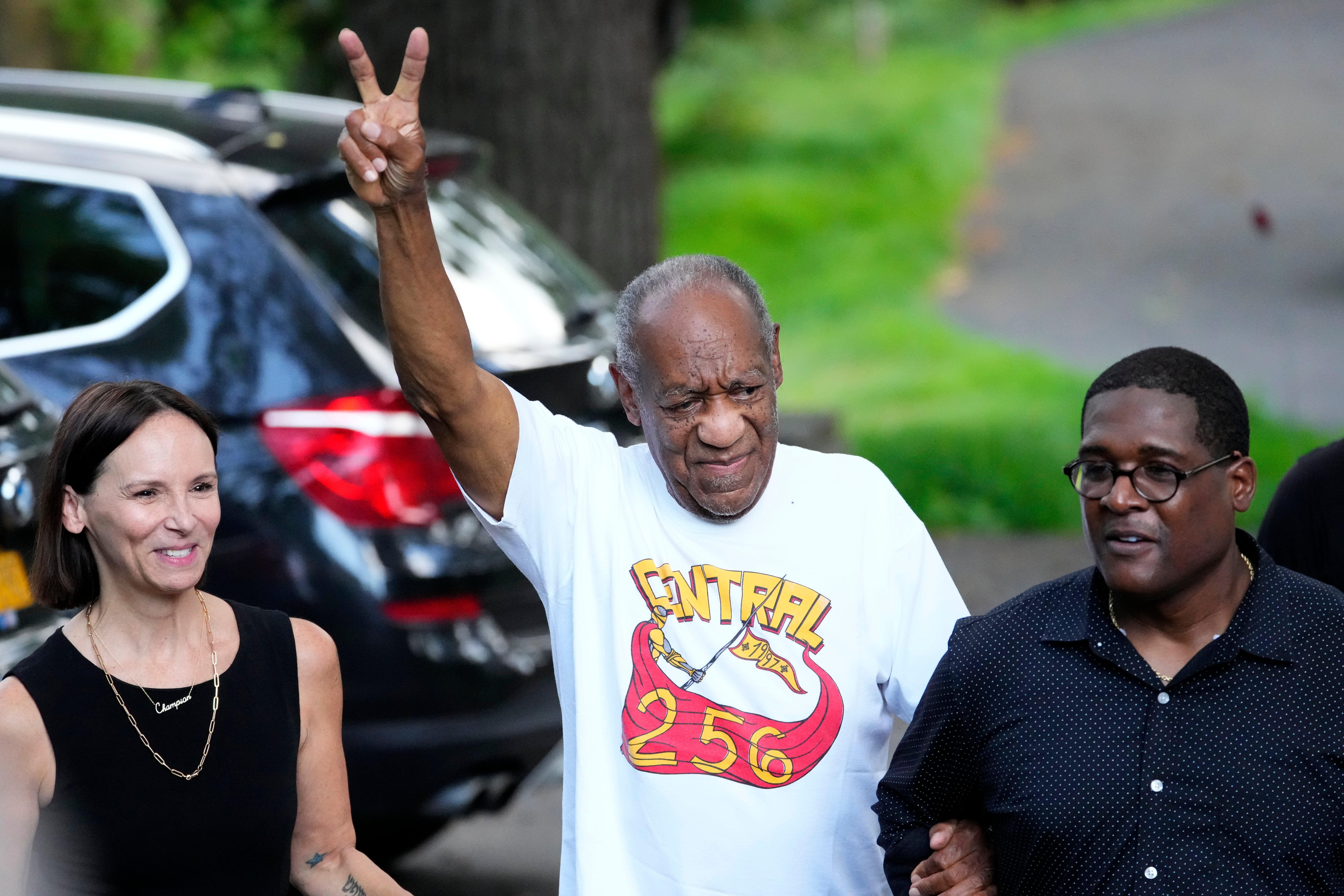With the freeing of Bill Cosby, justice for women has been dealt a death blow
To the fans and friends who are celebrating the decision, I want to ask you this: if you were yourself a victim of rape, what hope would you put in the justice system you now revere?


On Wednesday I got my second vaccine, and just like the first time I felt pretty awful. But it was the news about Bill Cosby’s conviction being overturned that made me want to hide under the covers. Justice, already fleeting for survivors of sexual violence, has been dealt what feels like a death blow.
More than 60 women have accused Cosby of rape or sexual assault. With violence against women as prevalent as it is, I know that numbers don’t count for much anymore; so let me not spare you the details of their allegations.
They were girls as young as fifteen. He used his power and fame to lure them to his hotel or home, the women said, under the pretence of an audition, career advice or friendship. Depending on his appetite for risk, he either offered them tablets or slipped them into their drinks, it was claimed. His alleged victims would wake up unsure of exactly what had happened but certain it was wrong – often naked, sometimes with memories of the abuse, occasionally covered in semen, always terrified. Cosby has always denied wrongdoing.
It took 14 years between the first allegation surfacing and Cosby being convicted, and just 17 months to appeal that decision and set him free. The court overturned the conviction based on a press release issued by former Montgomery county district attorney, Bruce Castor, in which Castor stated he would not charge Cosby.
What justice is this? What justice is this when a prosecutor can promise not to bring charges against a “sexually violent predator”? What justice is this when a press release can carry more weight than the testimony of 60 women? What justice is this when an alleged perpetrator can testify to giving women drugs in order to have sex with them, and still claim that it was consensual?
What justice is this when all but a couple of Cosby’s alleged victims were prevented from bringing a case because of a statute of limitations – a law that assumes the huge inequalities on which violence is predicated, and the trauma that it inflicts, can be overcome in a specified timeframe? This is not justice at all.
Here’s the thing, many of us who supported Cosby’s conviction never indulged the idea that this terrible episode resembled anything like justice. Other than the conviction itself, it was a showcase of everything that is wrong with how the criminal justice system and the media handle violence against women and girls. Coupled with Epstein, it was a painful reminder of the lengths we have to go to in order to hold powerful men to account.
And it was a warning shot to those of us with fewer resources, darker skin, or “less believable” stories – the very women who are more likely to be preyed upon – not to bother. We stood side-by-side with Andrea Constand, the only woman able to bring charges, because we knew she was as close as many of us would get to tasting justice.
The failures of our justice system mean that women have to speak out in numbers so large that we cannot be ignored or discredited – something that one of Cosby’s alleged victims poignantly described as “sorrowful sisterhood” and which many of us now associate with the #MeToo movement.
We have to speak out publicly because the police have been shown time and again to be incapable of handling these cases. But when we do speak out, we face accusations of mob justice and witch hunts, or cripplingly expensive defamation suits.
Buoyed by cases such as this, which get overturned on a technicality, Men’s Rights Activists insist that we should be more concerned with the idea of the “wrongfully accused man” than the reality of millions of women who every day suffer violence at the hands of men without any consequences whatsoever.
This, despite the fact that false accusations are no more common in rape cases than for other crimes. It’s a potent narrative: in the UK, the collapse of a couple of high-profile rape cases resulted in “digital strip searches” that put women on trial, prosecutors being warned not to pursue so-called “weak cases”, and plummeting conviction rates. Rape has effectively been decriminalised.
So to the fans and friends who are right now celebrating the decision to free Cosby, who believe that all these women were lying and/or that his conviction was a miscarriage of justice, I want to ask you this: if you were yourself a victim of rape, what hope would you put in the justice system you now revere?
That, in the end, was what got me out of bed. Because it shouldn’t require a global #MeToo movement to get Cosby convicted, but if it does then women have shown we can and will deliver one.
As much as this case has proven that justice is hard to come by for women, it has also confirmed that our activism and solidarity is the only thing that will ensure it. Only we can bend the arc towards justice now.
Mandu Reid is the leader of the Women’s Equality Party
Join our commenting forum
Join thought-provoking conversations, follow other Independent readers and see their replies
Comments
Bookmark popover
Removed from bookmarks